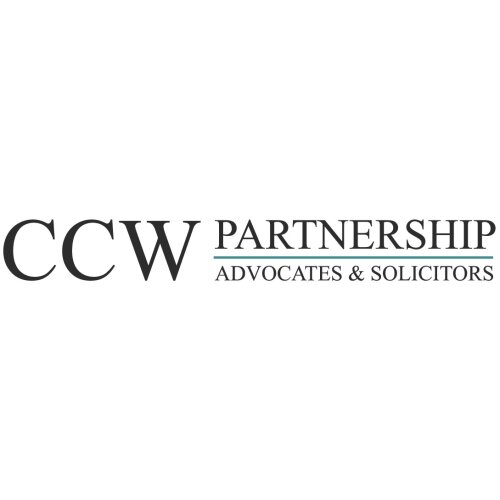Best Land Use & Zoning Lawyers in Bandar Seri Begawan
Share your needs with us, get contacted by law firms.
Free. Takes 2 min.
Free Guide to Hiring a Real Estate Lawyer
List of the best lawyers in Bandar Seri Begawan, Brunei
About Land Use & Zoning Law in Bandar Seri Begawan, Brunei
Land use and zoning laws in Bandar Seri Begawan, the capital city of Brunei, are designed to regulate the development and utilization of land across the city. These laws are crucial for maintaining the planned urban growth, protecting natural resources, and ensuring the harmonious coexistence of residential, commercial, and industrial areas. The main authority overseeing these regulations is the Town and Country Planning Department under the Ministry of Development. Zoning regulations in Bandar Seri Begawan include land use designations, building codes, and development guidelines that aim to preserve the cultural and environmental heritage of the city while accommodating urban expansion.
Why You May Need a Lawyer
Engaging a lawyer specializing in land use and zoning is often essential when dealing with issues such as property development, zoning disputes, or land acquisitions. Common situations requiring legal assistance include:
- Resolving disputes over land use rights and zoning classifications.
- Understanding and navigating the complex permitting and approval processes for new construction or land development.
- Challenging or seeking variances from existing zoning laws to accommodate unique development projects.
- Resolving boundary disputes or title issues.
- Handling negotiations or litigations involving environmental compliance or land use regulations.
Local Laws Overview
Key aspects of local land use and zoning laws in Bandar Seri Begawan include:
- Land Use Categories: The city is divided into zones such as residential, commercial, industrial, agricultural, and special use areas, each with specific regulations.
- Building Codes: These dictate the standards for construction, including safety regulations, architectural styles, and height restrictions.
- Development Control: All proposed developments need approvals from relevant government bodies, ensuring alignment with strategic urban plans.
- Environmental Guidelines: Laws to protect natural resources and ensure sustainable development are enforced, limiting activities that may cause ecological harm.
- Heritage Preservation: Regulations are in place to conserve historical and cultural sites, affecting development options in specific areas.
Frequently Asked Questions
What is zoning and why is it important?
Zoning refers to the regulation of land use within designated areas. It is important as it helps manage urban growth, reduce environmental impact, and prevent land use conflicts.
How do I find out the zoning classification of my property?
You can obtain zoning information through the Town and Country Planning Department or by reviewing local zoning maps available at government offices or their website.
Can zoning laws change, and how would I be informed of such changes?
Zoning laws can change through amendments made by local authorities. Residents are typically informed through public announcements, community meetings, or official notices.
What should I do if I want to change the zoning classification of my property?
You would need to file an application for a zoning change with the Town and Country Planning Department. The process may involve public hearings and reviews by government officials.
Is it possible to appeal a zoning decision?
Yes, if you are affected by a zoning decision, you may appeal to the relevant government bodies or seek legal recourse to challenge the decision.
What steps should I take if my development plans are rejected due to zoning issues?
Consult with a land use attorney to explore options such as applying for a variance or modifying your development plans to comply with current zoning regulations.
What is a variance and how can I apply for one?
A variance is an exception to the zoning regulations that allow for alternative land use. You can apply for a variance through the Town and Country Planning Department, typically requiring justification and an application fee.
Can I use residential property for business purposes?
Using residential property for business requires compliance with zoning regulations. Some businesses may be permitted under specific conditions or require rezoning or special permits.
Are there any fees associated with zoning applications?
Yes, most zoning applications, including changes, variances, or special permits, entail processing fees determined by the local government.
How can I ensure my development project adheres to all land use and zoning regulations?
Engage with local planning authorities early in the project planning phase, consider hiring a zoning attorney, and consult with urban planners to ensure full compliance with all relevant laws.
Additional Resources
For those seeking further assistance or information on land use and zoning in Bandar Seri Begawan, consider the following resources:
- Town and Country Planning Department: The primary governmental body overseeing urban planning and zoning regulations.
- Ministry of Development: Offers insights into development policies and local legislations.
- Local Legal Firms: Specialized in land use and zoning law, offering consultation and representation.
- Brunei Economic Development Board: Provides information on development opportunities and incentives.
- Chamber of Commerce: Offers networking opportunities and informational resources related to regional development prospects.
Next Steps
If you need legal assistance in land use and zoning, consider the following steps:
- Consult a Land Use Attorney: Schedule a meeting with a lawyer experienced in Brunei’s land use and zoning laws to understand your legal options.
- Gather Necessary Documentation: Organize all related documents, including land titles, zoning maps, and any previous correspondence with government bodies.
- Engage with Local Authorities: Contact the Town and Country Planning Department for specific inquiries and guidance regarding your property or development project.
- Stay Informed: Follow local government notices and news updates to stay informed of any changes in zoning laws or regulations that may affect your interests.
Lawzana helps you find the best lawyers and law firms in Bandar Seri Begawan through a curated and pre-screened list of qualified legal professionals. Our platform offers rankings and detailed profiles of attorneys and law firms, allowing you to compare based on practice areas, including Land Use & Zoning, experience, and client feedback.
Each profile includes a description of the firm's areas of practice, client reviews, team members and partners, year of establishment, spoken languages, office locations, contact information, social media presence, and any published articles or resources. Most firms on our platform speak English and are experienced in both local and international legal matters.
Get a quote from top-rated law firms in Bandar Seri Begawan, Brunei — quickly, securely, and without unnecessary hassle.
Disclaimer:
The information provided on this page is for general informational purposes only and does not constitute legal advice. While we strive to ensure the accuracy and relevance of the content, legal information may change over time, and interpretations of the law can vary. You should always consult with a qualified legal professional for advice specific to your situation.
We disclaim all liability for actions taken or not taken based on the content of this page. If you believe any information is incorrect or outdated, please contact us, and we will review and update it where appropriate.











